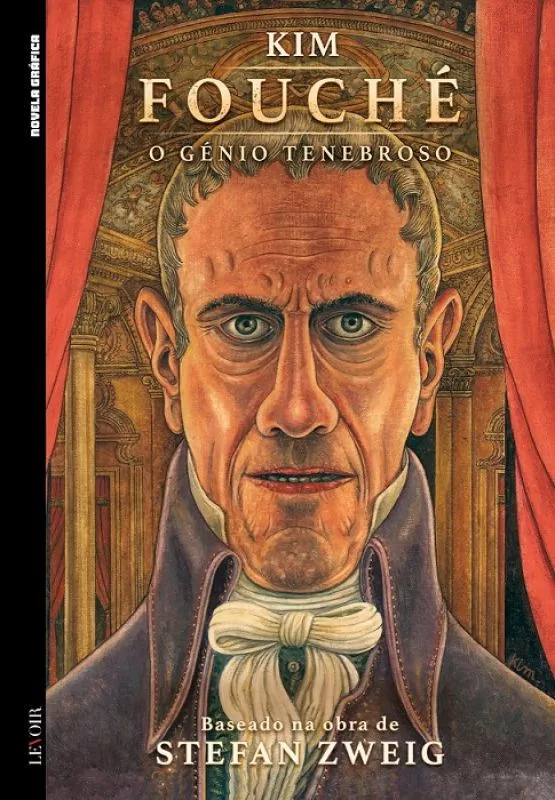
Baseado na famosa biografia de Stefan Zweig, Kim recria em vinhetas a ascensão e a queda de um verdadeiro animal político, um dos homens mais temidos e influentes do seu tempo, é considerado como o precursor da espionagem política e criador daquilo que actualmente denominamos como Ministério de Administração interna. Joseph Fouché é o conspirador político por excelência. Intrigante e astuto, foi a sombra do poder durante os anos que vão da Revolução Francesa à Restauração dos Bourbon. Fouché foi professor eclesiástico—e depois saqueou igrejas—e em poucos anos era milionário. Sem qualquer pudor, ao longo da vida, sempre se manteve ao lado do poder e alinhava-se às pessoas e ideias que estivessem no comando. Para Balzac, Joseph Fouché foi um gênio singular e a mente mais forte que conheceu. "Esse homem estudou gradual e silenciosamente as pessoas, as coisas e as práticas do cenário político (...)".
Authors
Librarian Note: There is more than one author in the Goodreads database with this name. Kim AKA Joaquim Aubert Puigarnau (Barcelona, 10 de noviembre de 1941) es un dibujante de historietas español.

Stefan Zweig was one of the world's most famous writers during the 1920s and 1930s, especially in the U.S., South America, and Europe. He produced novels, plays, biographies, and journalist pieces. Among his most famous works are Beware of Pity, Letter from an Unknown Woman, and Mary, Queen of Scotland and the Isles. He and his second wife committed suicide in 1942. Zweig studied in Austria, France, and Germany before settling in Salzburg in 1913. In 1934, driven into exile by the Nazis, he emigrated to England and then, in 1940, to Brazil by way of New York. Finding only growing loneliness and disillusionment in their new surroundings, he and his second wife committed suicide. Zweig's interest in psychology and the teachings of Sigmund Freud led to his most characteristic work, the subtle portrayal of character. Zweig's essays include studies of Honoré de Balzac, Charles Dickens, and Fyodor Dostoevsky (Drei Meister, 1920; Three Masters) and of Friedrich Hölderlin, Heinrich von Kleist, and Friedrich Nietzsche (Der Kampf mit dem Dämon, 1925; Master Builders). He achieved popularity with Sternstunden der Menschheit (1928; The Tide of Fortune), five historical portraits in miniature. He wrote full-scale, intuitive rather than objective, biographies of the French statesman Joseph Fouché (1929), Mary Stuart (1935), and others. His stories include those in Verwirrung der Gefühle (1925; Conflicts). He also wrote a psychological novel, Ungeduld des Herzens (1938; Beware of Pity), and translated works of Charles Baudelaire, Paul Verlaine, and Emile Verhaeren. Most recently, his works provided the inspiration for 2014 film The Grand Budapest Hotel.